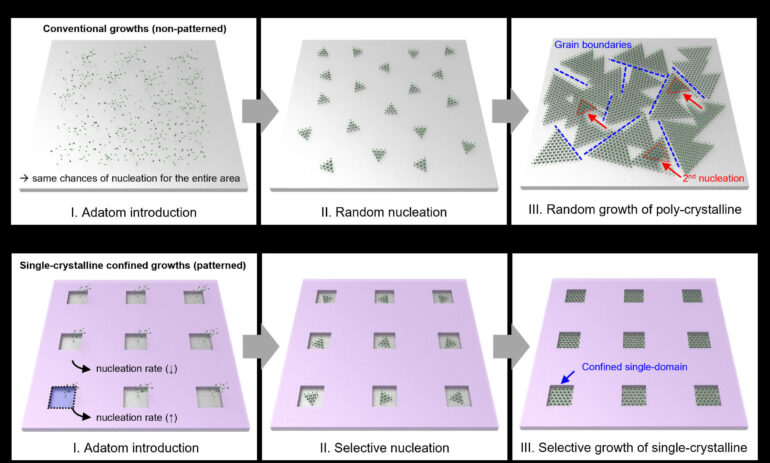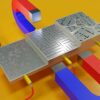Researchers from the University of Twente proved that germanene, a two-dimensional material made of germanium atoms, behaves as a topological insulator. It is the first 2D topological insulator that consists of a single element. It also has the unique ability to switch between “on” and “off” states, comparable to transistors. This could lead to more energy-efficient electronics.
Topological insulators are materials with the unique property of insulating electricity in their interior while conducting electricity along their edges. The conductive edges allow electrical current to flow without energy loss. “At the moment, electronic devices lose a lot of energy in the form of heat, because defects in the material increase the resistance. As a result, your mobile phone can get uncomfortably hot,” explains UT researcher Pantelis Bampoulis.
While scattering at defects is allowed in normal materials, at the edges of 2D topological insulators, the scattering of electrons at defects is forbidden due to the unique topological protection mechanism. Therefore, electrical current in 2D topological insulators flows without dissipating energy. This makes them more energy-efficient than current electronic materials.
Germanene is such a 2D topological insulator. “Current topological insulators consist of complex structures from different types of elements. Germanene is unique in that it’s made from just a single element,” explains Bampoulis. To create this exciting material, the researchers melted germanium together with platinum. When the mixture cooled down, a tiny layer of germanium atoms arranged into a honeycomb lattice on top of the germanium-platinum alloy. This 2D layer of atoms is called germanene.
The researchers also discovered that the conducting properties of the material can be switched “off” by applying an electric field. This property is unique for a topological insulator. “The possibility to switch between ‘on’ and ‘off’ states adds an exciting application case for germanene,” says Bampoulis. It paves the way for designing topological field-effect transistors. These transistors could replace traditional transistors in electronic devices. Resulting in electronics that no longer heat up.
The research is published in the journal Physical Review Letters.
More information:
Pantelis Bampoulis et al, Quantum Spin Hall States and Topological Phase Transition in Germanene, Physical Review Letters (2023). DOI: 10.1103/PhysRevLett.130.196401
Provided by
University of Twente
Citation:
New material paves the way for more efficient electronics (2023, May 16)



